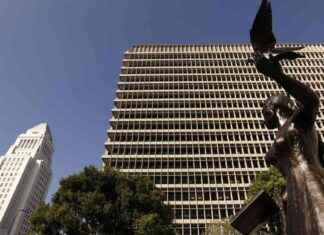Kosovo, which uses the euro but where some 120,000 Serbs live in the north of the country, has suspended a ban on transactions in Serbian dinars, under pressure from several Western countries. They see it as an unnecessary provocation towards Serbia, an ally of Moscow.
In mid-January, the central bank in Pristina announced that from February 1, only euros would be allowed for cash and electronic payments in the country. “We will not immediately apply punitive measures” on that date, Deputy Prime Minister Besnik Bislimi said on Wednesday (January 31). “We will take the time to inform Serbian citizens,” he added to the press.
The government “commits to transition periods so that citizens can adapt as quickly as possible and with as little inconvenience as possible,” he added. But the euro “remains the only official currency”, he insisted.
Impact on daily life
Several Western governments denounced Pristina’s decision, fearing an escalation between Serbia and Kosovo. “We are concerned about the impact of the regulation, in particular on schools and hospitals, for which no alternative process seems viable at the moment,” wrote the ambassadors of France, Germany, the United Kingdom, of Italy and the United States in a joint press release on Saturday.
“The regulations will also have a direct impact on the daily lives of the overwhelming majority of Kosovo Serbs, who receive payments [and] financial assistance from Serbia,” they added, calling for suspension of the ban and to ensure a “sufficiently long transition period” with “effective” communication.
In the morning, the President of Kosovo, Vjosa Osmani, seemed in favor of this postponement: “To achieve full implementation, we also need the support of our allies, in order to ensure stability,” she said. -she says.
Risk of escalation between Belgrade and Pristina
At the end of the war in 1999, Kosovo, then a Serbian province, chose the Deutsche Mark as its currency – the Yugoslav dinar was disappearing. In 2002, when the euro became legal tender in Germany, Kosovo followed to make it its de facto national currency, but no formal agreement exists with the European Economic and Monetary Union.
The Serbian dinar is, however, tolerated in predominantly Serbian areas. Its ban risks rekindling tensions in these towns and villages where many people work or have worked for Serbian institutions with salaries or pensions paid in dinars.
Belgrade, which has never recognized the independence of Kosovo, proclaimed in 2008, supports the Serbian community there, estimated at 120,000 people, through jobs and financial aid. Serbia’s budget provides around €120 million for Kosovo each year.
But no one in Pristina gives the impression of wanting to back down. Kosovar authorities presented this new regulation as a way to fight corruption, money laundering and counterfeit currency. The Serbian government sees this only as a provocation which would probably derail “once and for all” the negotiations aimed at normalizing relations between Serbia and Kosovo, while the year 2023 has already been marked by peaks of tensions.






